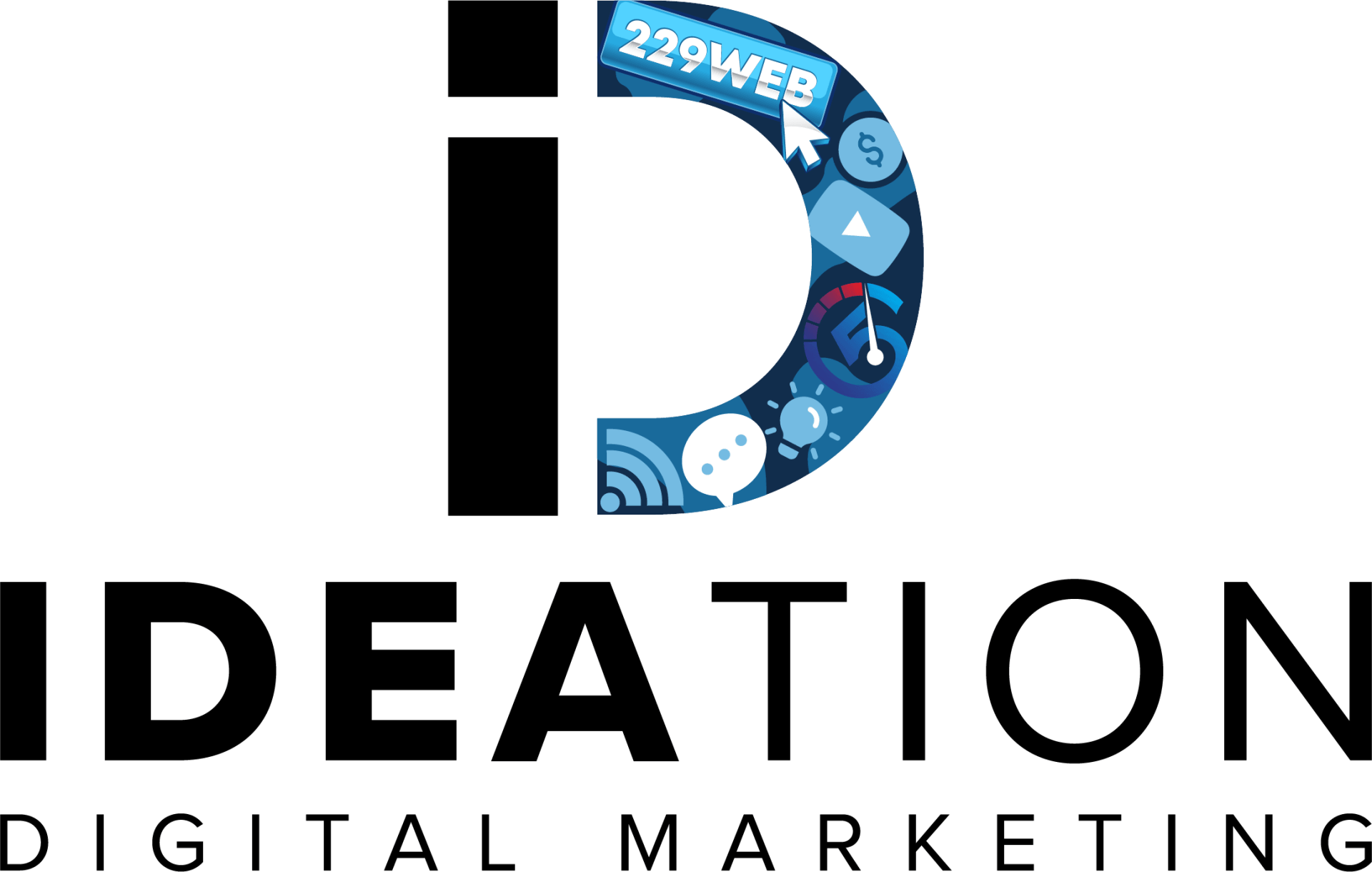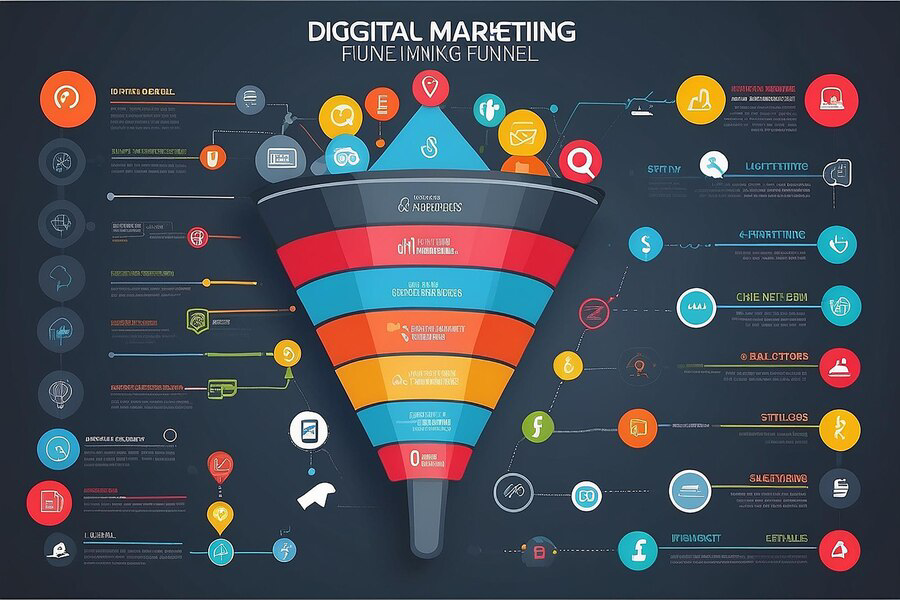222 Capitol Street, Suite 522
Charleston, WV 25301

Beyond Traditional: Unleashing the Power of Digital Marketing for Your Business
In an era where the digital landscape is redefining the way businesses connect with their audience, the call to move "Beyond Traditional" has become more than a mere suggestion—it's a strategic imperative. Traditional marketing methods, while still relevant, are no longer sufficient in the face of the dynamic and interconnected world of digital marketing. In this article, we delve into the transformative power of digital marketing and explore how businesses can
unleash its potential to propel their brand into the forefront of the modern marketplace.
Digital Marketing 101
Digital Marketing 101: Navigating the Essentials of Online Success
In the contemporary landscape of business, understanding the fundamentals of digital marketing is no longer a choice but a strategic imperative. Digital Marketing 101 serves as the gateway to unlocking the vast potential of online channels for businesses seeking visibility, engagement, and growth. From establishing a robust online presence to leveraging data-driven insights, let's delve into the essentials that constitute the foundational elements of Digital Marketing 101.
The Digital Landscape Overview
Digital marketing operates within a multifaceted landscape encompassing various online platforms and channels. Social media, search engines, email marketing, content creation, and websites are integral components. Understanding the dynamics of this digital ecosystem is the first step in navigating Digital Marketing 101.
Website as the Digital Hub
A business's website is the central hub in the digital realm. It's not just an online presence; it's the virtual storefront, a digital reflection of the brand. Ensuring a well-designed, user-friendly, and informative website is crucial in Digital Marketing 101. Websites act as the anchor, providing a platform for showcasing products, services, and brand identity.
Search Engine Optimization (SEO)
Search Engine Optimization (SEO) is the cornerstone of Digital Marketing 101. It involves optimizing online content to rank higher in search engine results. By incorporating relevant keywords, improving website structure, and creating high-quality content, businesses enhance their visibility, attracting organic traffic and positioning themselves as authoritative voices within their industry.

Content Creation and Marketing
Content is the currency of digital marketing. Digital Marketing 101 emphasizes the creation and dissemination of valuable, relevant, and consistent content across various channels. From blog posts and articles to videos, infographics, and social media updates, compelling content serves as the linchpin for engaging and retaining online audiences.
Social Media Strategy
Social media platforms are pivotal in Digital Marketing 101. Crafting a robust social media strategy involves selecting the right platforms for the target audience, creating engaging content, and fostering meaningful interactions. Social media acts as a dynamic channel for brand promotion, community building, and direct engagement with customers.
Email Marketing Essentials
Email marketing remains a powerful tool in Digital Marketing 101. Building an email list and delivering targeted, personalized messages allows businesses to nurture relationships with their audience. From newsletters to promotional offers, email marketing serves as a direct and cost-effective means of communication.
Data-Driven Decision Making
Data is the compass guiding Digital Marketing 101. Businesses must leverage analytics tools to collect and analyze data from various online activities. By interpreting metrics such as website traffic, user engagement, and conversion rates, organizations make informed decisions, optimize strategies, and enhance the overall effectiveness of their digital efforts.
Paid Advertising Strategies
In Digital Marketing 101, paid advertising compliments organic efforts. Platforms like
Google Ads and social media advertising enable businesses to target specific audiences, increase visibility, and drive traffic to their websites. Strategic allocation of ad budgets and continuous optimization are key components of successful paid advertising strategies.
Mobile Optimization
With the prevalence of smartphones, mobile optimization is non-negotiable in Digital Marketing 101. Ensuring that websites, emails, and content are optimized for mobile devices is essential for reaching a diverse and on-the-go audience. Responsive design and mobile-friendly experiences enhance user satisfaction and contribute to overall online success.
Continuous Learning and Adaptation
Digital Marketing is a dynamic field, subject to constant evolution. Digital Marketing 101 emphasizes the importance of continuous learning and adaptation. Staying informed about industry trends, emerging technologies, and shifts in consumer behavior allows businesses to remain agile, innovative, and responsive to the ever-changing digital landscape.
Precision Targeting with Social Media
Precision Targeting with Social Media: A Strategic Approach to Audience Engagement
In the dynamic realm of digital marketing, precision targeting with social media has emerged as a game-changing strategy for businesses seeking to connect with their audience on a deeply personal level. Gone are the days of broadcasting messages to a broad audience; instead, businesses are leveraging the power of social media to reach specific segments with tailored content. Let's explore the intricacies of precision targeting, its significance, and how businesses can strategically deploy this approach to enhance audience engagement.

Understanding Precision Targeting:
Precision targeting involves the strategic focus on specific demographics, behaviors, and interests when delivering marketing messages. In the context of social media, this means tailoring content and advertisements to reach a carefully defined audience rather than employing a one-size-fits-all approach.
Leveraging Social Media Platforms:
Different social media platforms offer unique opportunities for precision targeting. Facebook, Instagram, Twitter, LinkedIn, and others provide robust advertising tools that allow businesses to define their target audience based on demographics, interests, online behaviors, and more. Understanding the strengths of each platform is crucial for effective precision targeting.
Defining Audience Personas:
Precision targeting begins with the creation of detailed audience personas. These personas represent the ideal customers or clients and encompass demographic information, preferences, behaviors, and pain points. Businesses can use these personas to tailor their social media content and advertisements to resonate specifically with each target segment.
Utilizing Demographic Filters:
Social media platforms offer powerful demographic filters that enable businesses to refine their audience targeting. Factors such as age, gender, location, education, and income can be precisely defined. This ensures that marketing messages are delivered to the most relevant audience, maximizing the impact of each campaign.
Behavioral and Interest Targeting:
Understanding the online behaviors and interests of the target audience is crucial for precision targeting. Social media platforms allow businesses to target users based on their interactions, engagement with content, and expressed interests. By aligning content with these behaviors, businesses can create a more personalized and resonant experience for users.
Dynamic Ad Customization:
Precision targeting extends to the content of advertisements. Dynamic ad customization involves tailoring the ad content based on the specific characteristics of the target audience. This could include showcasing different product features, promotions, or messaging based on the unique preferences and behaviors of each segment.
Retargeting Strategies:
Retargeting is a potent precision targeting technique that involves reaching users who have previously interacted with a business's website or content. Through pixel tracking and data analysis, businesses can serve targeted ads to users who have shown interest but may not have completed a desired action, such as making a purchase.
New Paragraph
A/B testing is a vital component of precision targeting. It involves creating multiple variations of an ad or content and testing them against each other to determine which performs best. By analyzing the results, businesses can continually optimize their precision targeting strategies, refining content to better resonate with specific audience segments.
Social Listening for Insights:
Social listening involves
monitoring online conversations to gain insights into audience sentiments, preferences, and trends. By understanding what their audience is discussing, businesses can further refine their precision targeting strategies, ensuring that their content aligns with the current interests and concerns of their target demographic.
New Paragraph
Precision targeting is an iterative process that requires continuous measurement and analysis. Businesses must utilize analytics tools provided by social media platforms to assess the performance of their campaigns. By evaluating key performance indicators (KPIs) such as engagement rates, click-through rates, and conversions, businesses can make data-driven decisions and refine their precision targeting strategies for ongoing success.
In the digital realm, visibility is paramount, and SEO is the key to unlocking it. SEO involves optimizing a website's content to rank higher on search engine results pages. This not only increases visibility but also enhances the credibility of a business. Beyond traditional methods, where potential customers may stumble upon a print ad, SEO ensures that businesses actively appear in search queries related to their products or services.
New Paragraph
Email Marketing
Email marketing has evolved far beyond the simple newsletters of the past. It remains a powerful tool for businesses looking to nurture leads and maintain customer relationships. With the ability to personalize content, automate campaigns, and track user engagement, email marketing goes beyond traditional methods by providing a direct line of communication with a segmented and targeted audience.
Analytics and Data-Driven Insights
New Paragraph
Interactive Campaigns and User Experience
Ephemeral Content and FOMO
Personalized Customer Journeys
Digital marketing allows businesses to create personalized customer journeys based on user behavior and preferences. Through tools like marketing automation, businesses can deliver targeted content, recommendations, and offers at various stages of the customer journey. This personalized approach goes beyond traditional mass marketing, ensuring that customers receive relevant and timely information.
Perhaps the most compelling aspect of digital marketing is its adaptability and scalability. Beyond the limitations of traditional campaigns, digital strategies can be adjusted in real-time based on performance data. This agility enables businesses to experiment, refine, and scale their efforts, ensuring a continuous evolution that aligns with market dynamics.
New Paragraph
In the shift from traditional to digital marketing, businesses have the opportunity to unleash a new era of brand engagement and growth. Beyond the confines of print ads and billboards, the digital landscape offers a dynamic canvas for businesses to connect, interact, and build relationships with their audience. By embracing precision targeting, SEO, content creation, analytics, interactive campaigns, and personalized customer journeys, businesses can unleash the full power of digital marketing to propel their brand beyond traditional boundaries. In the ever-evolving digital arena, the journey is not just about adopting new methods; it's about transforming the way businesses connect and thrive in the modern marketplace.

Main Office
222 Capitol Street, Suite 522
Charleston, WV 25301
other offices
48 1/2 Second Ave, Williamson, WV 25661
20 Clinch Mountain Ave, Lebanon, VA 24266,
Contact
DIGITAL MARKETING SERVICES
All Rights Reserved | Ideation Digital
Private Policy
All Rights Reserved | Ideation Digital











